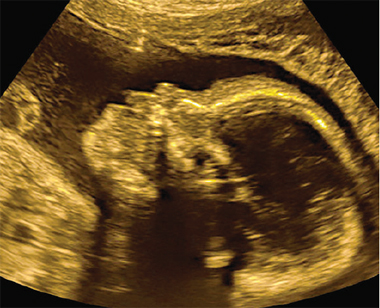Study Finds Link Between Exposure to Synthetic Progestin During Development, Impaired Cognitive Function
 |
|
The study reports effects similar to developmental disorders such as ADHD or autism. |
ALBANY, N.Y. (March 9, 2016) – Exposure to synthetic progestin – a steroid hormone used to prevent premature birth in at risk women – has been linked to impaired cognitive function in a recent animal study co-authored by University at Albany Psychologist Christine K. Wagner.
The results of an animal study, recently published in the journal Endocrinology show that exposure to synthetic progestin (17 alpha-hydroxyprogesterone caproate/17-OHPC) during development could impair brain function later in life.
Wagner, along with Jari Willing, of the University of Illinois at Urbana-Champaign, note that there is little information regarding the potential effects of 17-OHPC on the developing brain, and yet the drug is prescribed during the late-second and third trimesters and can be detected in maternal and fetal plasma long after injection.
If a mother is prescribed 17-OHPC, developing infants may be exposed to the hormone during critical periods of cortical development. Willing and Wagner used a rodent model to test the effects of 17-OHPC during development on cognitive flexibility — the ability to change strategy in light of shifting environmental contingencies — a process which they point out is highly dependent on dopaminergic activity in the prefrontal cortex. Rats were trained to use a rule to find a food reward, and then the rule was changed, so the rats had to shift to the new rule to find the food reward again.
They found that the rats exposed to 17-OHPC during development had a harder time shifting to the new rule compared to their control counterparts, continuing to use the first rule longer than controls. What’s more, males seemed to have a harder time, suggesting that sex differences in exposure to the drug may exist.
The authors conclude that 17-OHPC exposure impaired cognitive flexibility and increased perseverative behavior in adulthood.
"The present findings reporting neurocognitive effects reminiscent of those often associated with developmental disorders such as ADHD and autism should highlight the need for additional research on the potential effects in children. Ultimately, they should also contribute to the assessment of the benefits versus the potential risks of synthetic progestin administration in pregnant women," said Wagner.
To Wagner's and Willing's knowledge, the results from this study provide the first documentation of long-term consequences of 17-OHPC exposure during development on cognitive behavior and offer more insight into the potential role of progestins in neural development.
![]() For more news, subscribe to UAlbany's RSS headline feeds
For more news, subscribe to UAlbany's RSS headline feeds
A comprehensive public research university, the University at Albany-SUNY offers more than 120 undergraduate majors and minors and 125 master's, doctoral and graduate certificate programs. UAlbany is a leader among all New York State colleges and universities in such diverse fields as atmospheric and environmental sciences, business, education, public health,health sciences, criminal justice, emergency preparedness, engineering and applied sciences, informatics, public administration, social welfare and sociology, taught by an extensive roster of faculty experts. It also offers expanded academic and research opportunities for students through an affiliation with Albany Law School. With a curriculum enhanced by 600 study-abroad opportunities, UAlbany launches great careers.


